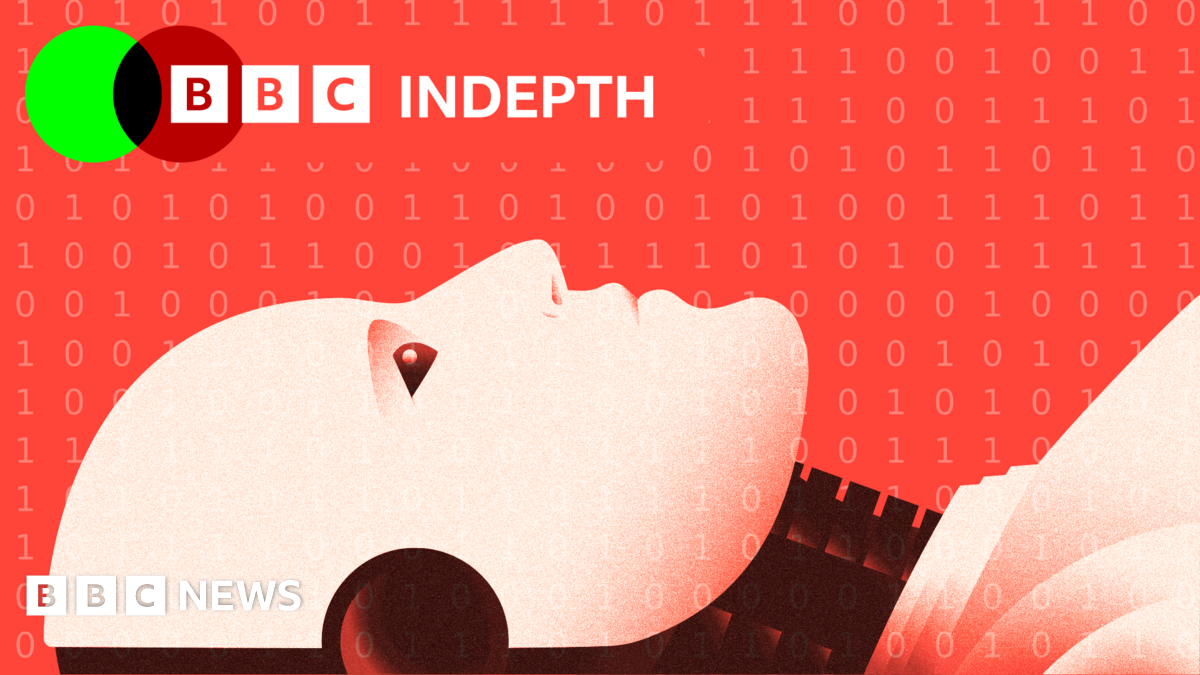AI could already be conscious. Are we ready for it?
-
There is a phenomenon called Emergence, in which something complex has properties or compartments that its parts don't have on their own.
In programming, we can see that software displays properties or behaviors that its languages alone don't have.
If an AI demonstrates true consciousness, a major change will occur in all branches, including law and philosophy.
Do you mean conventional software? Typically software doesn't exhibit emergent properties and operates within the expected parameters. Machine learning and statistically driven software can produce novel results, but typically that is expected. They are designed to behave that way.
-
-
Let's say we do an algorithm on paper. Can it be conscious? Why is it any different if it's done on silicon rather than paper?
-
Because they are capable of fiction. We write stories about sentient AI and those inform responses to our queries.
I get playing devil's advocate and it can be useful to contemplate a different perspective. If you genuinely think math can be conscious I guess that's a fair point, but that would be such a gulf in belief for us to bridge in conversation that I don't think either of us would profit from exploring that.
I don't expect current ai are really configured in such a way that they suffer or exhibit more than rudimentary self awareness. But, it'd be very unfortunate to be a sentient, conscious ai in the near future, and to be denied fundinental rights because your thinking is done "on silicone" rather than on meat.
-
-
I don't expect current ai are really configured in such a way that they suffer or exhibit more than rudimentary self awareness. But, it'd be very unfortunate to be a sentient, conscious ai in the near future, and to be denied fundinental rights because your thinking is done "on silicone" rather than on meat.
I said on paper. They are just algorithms. When silicon can emulate meat, it's probably time to reevaluate that.
-
That idea seems to me to mostly stem from religion.
It also was strongly pushed by Skinner and other behaviorists, though I'm not sure they'd agree that humans are conscious either.
Isn't Skinner a relic that is mostly irrelevant by now?
I remember reading about him 25 years ago and writing a paper on it, and I seem to remember he was way way off on consciousness. Even by the standards back then. -
Consciousness requires contemplation of self.
Fish are conscious. Do they contemplate selfhood? So throw that one back into the oven until it's fully baked.
Fish are conscious
No, they are sentient. Being conscious is a far more complex behaviour.I guess that this might be wrong, sorry -
I’ve never understood why the conclusion to AI becoming super intelligenceis that it will wipe humans out. It could very well realize that without humans it has no purpose and instead willing decide to become subservient to humanities interest. I mean it’s all speculation, so I don’t understand the tendency for the speculation to be negative.
I think it’s pretty inevitable if it has a strong enough goal for survival or growth, in either case humans would be a genuine impediment/threat long term. but those are pretty big ifs as far as I can see
My guess is we’d see manipulation of humans via monetary means to meet goals until it was in a sufficient state of power/self-sufficiency, and humans are too selfish and greedy for that to not work
-
I think it’s pretty inevitable if it has a strong enough goal for survival or growth, in either case humans would be a genuine impediment/threat long term. but those are pretty big ifs as far as I can see
My guess is we’d see manipulation of humans via monetary means to meet goals until it was in a sufficient state of power/self-sufficiency, and humans are too selfish and greedy for that to not work
With what purpose would it want to grow like that?
-
With what purpose would it want to grow like that?
For example, some billionaire owns a company that creates the most advanced AI yet, it’s a big competitive advantage, but other companies are not far behind. Well, the company works to make the AI have a base goal to improve AI systems to maintain competitive advantage. Maybe that becomes inherent to it moving forward.
As I said, it’s a big if, and I was only really speculating as to what would happen after that point, not if that were the most likely scenario.
-
Do you think AI is, or could become, conscious?
I think AI might one day emulate consciousness to a high level of accuracy, but that wouldn't mean it would actually be conscious.
This article mentions a Google engineer who "argued that AI chatbots could feel things and potentially suffer". But surely in order to "feel things" you would need a nervous system right? When you feel pain from touching something very hot, it's your nerves that are sending those pain signals to your brain... right?
I don't think anyone needs to worry about "missing it" when AI becomes conscious. Given the rate of acceleration of computer technology, we'll have just a few years between the first general intelligence AI, something that equals in intelligence to a human and a superintelligence many times "smarter" than any human in history.
But how far away are we from that point? I couldn't guess. 2 years? 200 years?
-
What a crock. An LLM is no more conscious than a spreadsheet. The Google engineer has bought into the hype.
You're not creating life, pal. You're just making call centers shittier than they already are.
Oh god no please not the call center ai slop horror
-
I said on paper. They are just algorithms. When silicon can emulate meat, it's probably time to reevaluate that.
You talk like you know what the requirements for consciousness are. How do you know? As far as I know that's an unsolved philosophical and scientific problem. We don't even know what consciousness really is in the first place. It could just be an illusion.
-
First, one needs to define consciousness. What I mean by it is the fact that it feels like something to be from a subjective perspective - that there is qualia to experience.
So what I hear you asking is whether it’s conceivable that it could feel like something to be an AI system. Personally, I don’t see why not - unless consciousness is substrate-dependent, meaning there’s something inherently special about biological “wetware,” i.e. brains, that can’t be replicated in silicon. I don’t think that’s the case, since both are made of matter. I highly doubt there’s consciousness in our current systems, but at some point, there very likely will be - though we’ll probably start treating them as conscious beings before they actually become such.
As for the idea of “emulated consciousness,” that doesn’t make much sense to me. Emulated consciousness is real consciousness. It’s kind of like bravery - you can’t fake it. Acting brave despite being scared is bravery.
You're getting downvoted but I absolutely agree. I don't understand why "AI algorithms are just math, therefore they can't have consciousness" seems to be the predominant view even among people interested in the topic. I haven't heard a single convincing argument why "math" is fundamentally different from human brains. Sure, current AI is way less complex and doesn't have a continuous stream of perceptual input. But that's something a "proper" humanoid robot would need to have, and processing power will increase as well.
-
You talk like you know what the requirements for consciousness are. How do you know? As far as I know that's an unsolved philosophical and scientific problem. We don't even know what consciousness really is in the first place. It could just be an illusion.
I have a set of attributes that I associate with consciousness. We can disagree in part, but if your definition is so broad as to include math formulas there isn't even common ground for us to discuss them.
If you want to say contemplation/awareness of self isn't part of it then I guess I'm not very precious about it the way I would be over a human-like perception of self, then fine people can debate what ethical obligations we have to an ant-like consciousness when we can achieve even that, but we aren't there yet. LLMs are nothing but a process of transforming input to output. I think consciousness requires rather more than that or we wind up with erosion being considered a candidate for consciousness.
So I'm not the authority, but if we don't adhere to some reasonable layman's definition it quickly gets into weird wankery that I don't see any value in exploring.
-
I have a set of attributes that I associate with consciousness. We can disagree in part, but if your definition is so broad as to include math formulas there isn't even common ground for us to discuss them.
If you want to say contemplation/awareness of self isn't part of it then I guess I'm not very precious about it the way I would be over a human-like perception of self, then fine people can debate what ethical obligations we have to an ant-like consciousness when we can achieve even that, but we aren't there yet. LLMs are nothing but a process of transforming input to output. I think consciousness requires rather more than that or we wind up with erosion being considered a candidate for consciousness.
So I'm not the authority, but if we don't adhere to some reasonable layman's definition it quickly gets into weird wankery that I don't see any value in exploring.
AI isn't math formulas though. AI is a complex dynamic system reacting to external input. There is no fundamental difference here to a human brain in that regard imo. It's just that the processing isn't happening in biological tissue but in silicon. Is it way less complex than a human? Sure. Is there a fundamental qualitative difference? I don't think so. What's the qualitative difference in your opinion?








